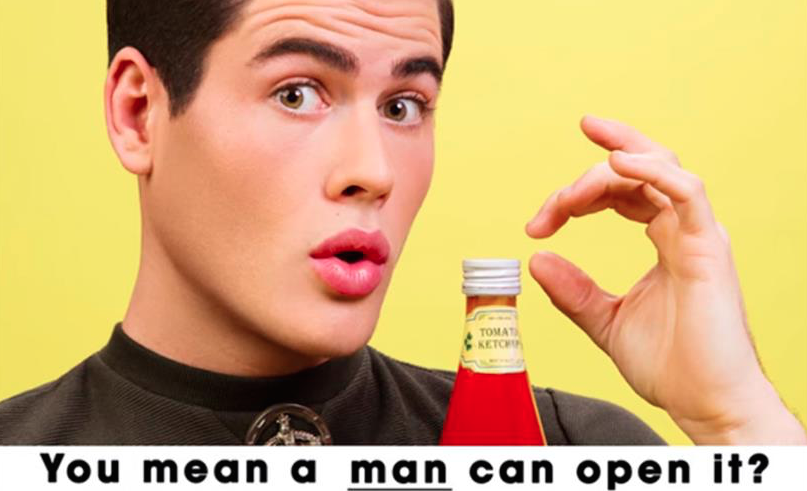
Status quo, meet your match: Michael Moore. The award winning filmmaker and his Traverse City Film Festival which just took place form July 26-31, just did something that no other major film festival in the United States has done. The TCFF team decided to ensure the entire line up was filled with movies made by female directors. Oh but don’t worry, there was noted spotlight (read: token) category for the men, “Men Make Movies – The Struggle Continues”.
Does this sound incredibly sexist to you? Are you by any chance angry about the possibility that so many films were excluded because they weren’t directed by a woman? Are you wondering why on earth the entire line up favored female filmmakers, and not men? If you answered yes to any of these questions, congratulations, you now have a taste of what many women in Hollywood have been experiencing for years.
In some cases, decades, as we have learned about the director who initially brought forth a case to the ACLU, which has now become a major investigation into the alleged discriminatory hiring practices of female directors by major studios. But don’t worry, Michael Moore and the TCFF’s decision wasn’t made simply to “get back” at men, or anyone for that matter. It was a strategic move to be part of the movement exposing the underbelly of sexism in a supposed liberal industry.

The TCFF began in 2005 and in this year’s line up, each of the 32 narrative and documentary features were either directed or co-directed by a woman. While we are certainly glad he chose to do this and use an important platform to give voice to female directors, we hope it will provoke consistent change, rather than just a water-cooler moment conversation soon forgotten about as the festival season rolls on.
Research from 2015 published by Silk.co delved into the reality of how female directors fare in some of the world’s major film festivals. At the Venice Film Festival, women only made up 13% of directors in the films chosen, while in Toronto the number was a little higher at 26%, and at Sundance it was 27%. When they analyzed the percentage of women in winning films, for each of the three aforementioned festivals, the number decreased. Only in the International Documentary Film Festival in Amsterdam, where women made up 31% of directors, did the number of female-directed winning films increase, to a whopping 50%. Now that number looks a little more like equality to us.
Of course, it can’t just be about numbers and percentages, the talent and creativity is what should be judged. But there is enough research and data to suggest that having a female behind the camera can impact the trajectory of a film’s success. It’s sad to say, that in 2016, in a creative industry like Hollywood, gender is still a hurdle in a number of ways, so making a decision such as ensuring all films represented at a film festival are only female-directed ones, is about breaking down that hurdle.

Some of the films featured include Rebecca Miller’s ‘Maggie’s Plan’, Logan Kibens’ ‘Operator’, Marielle Heller’s ‘Diary of a Teenage Girl’, Meera Menon’s ‘Equity’, Maris Curran’s ‘Five Nights in Maine’, Heidi Ewing & Rachel Grady’s documentary ‘Norman Lear: Just Another Version of You’, and Kelly Reichardt’s ‘Certain Women’ to name just a few.
In an interview with Indiewire, Michael explained that although he did admit to having to go the extra mile to ensure an all-female line-up, it was possibly and all the films were amazing.
“The audience is being ripped off not getting to see the stories told by the majority gender,” Moore wrote me. “This is my small attempt to shake things up,” he said.
In a letter posted on the TCFF website Michael Moore explained exactly why they chose to do this. You can read the full transcript below, as shared on the Women and Hollywood blog, but if you are looking for another film festival which champions female filmmakers annually, and is the only major film festival to date to offer guaranteed distribution to its winners, check out Geena Davis’ Bentonville Film Festival.

The New York Times recently reported that in 2014 (as in most years), of the top 100 grossing films released by Hollywood, only 2 were directed by women. That’s right, two. It’s not that only two women tried to get their films made. It’s just that only two were able to make their way up through a tiny crack in the glass ceiling of Tinseltown.
I belong to one of the most “liberal” industries in the US—the movie-making business—and we have managed for all of our 100+ years to virtually shut out and shut up the 51% of the population who are women. It is not lost on me that I work for a hierarchy that benignly sees to it that the majority gender does not get to tell their stories.
Let me state an uncomfortable truth. While I acknowledge that I’ve been blessed with certain talents for making the movies I’ve made, I am well aware that, as a white male, I’ve also been able to succeed on an obscenely uneven playing field that makes it much easier for me to walk through the studio gates and into the offices of bankers and funders because of my gender and my race. That’s just a simple fact.
And this rigged system continues uninterrupted when those of us who benefit from our “white male privilege” do not acknowledge it openly, do not rock the boat that has served us so well, do not rail against the obvious and thus remain complicit through our obedient silence. This tidy little arrangement keeps women—and people of color—in their place: on the outside looking in, with only a rare token seat for them at the table. (That seat, by the way, is occasionally there thanks to the indie and documentary worlds, where “only” 75% of the films are directed by men.)

It’s no surprise to me that attendance in theaters continues to drop. Most of you, I’m guessing, have little interest in seeing the same old tired batch of derivative, dumbed-down, sequel-saturated retreads that open each Friday at the local multiplex. If it’s the same group of filmmakers that keeps telling the same group of stories over and over again, it’s bound to get pretty boring. Don’t you wonder what the movies might look like if we got to watch stories from the majority of the population? Are we ever better off locking out any group of people from any activity? Have you ever seen what a basketball game looked like when a certain race was prohibited from playing it? Go online and watch a clip from any NBA game of the 1950s and try not to laugh. It’s weird and it’s wrong.
Hollywood’s refusal to pass the camera (and the funding) over to women and people of color so that they can tell their stories is the reason your choices this summer at the cine-mall are between “Fast and Furious Transformers: The Apocalypse” and “Buddy Comedy Road Trip to the Gods of Egypt 6.” Don’t you want to do something about that?
In our 12 years, the Traverse City Film Festival has remade and revolutionized the concept of what a film festival could be. We’ve also built two movie palaces in TC that are unlike any others in this country (and we’ve helped other Michigan theaters follow our lead). We’ve done this right smack in the middle of “nowhere.” And people elsewhere have taken notice. Who would have thought that a place called Traverse City could impact our beloved American populist art form, the cinema? You—we—did this.

















One thought on “Every Movie Featured In Michael Moore’s Traverse City Film Festival Was Directed By A Woman”